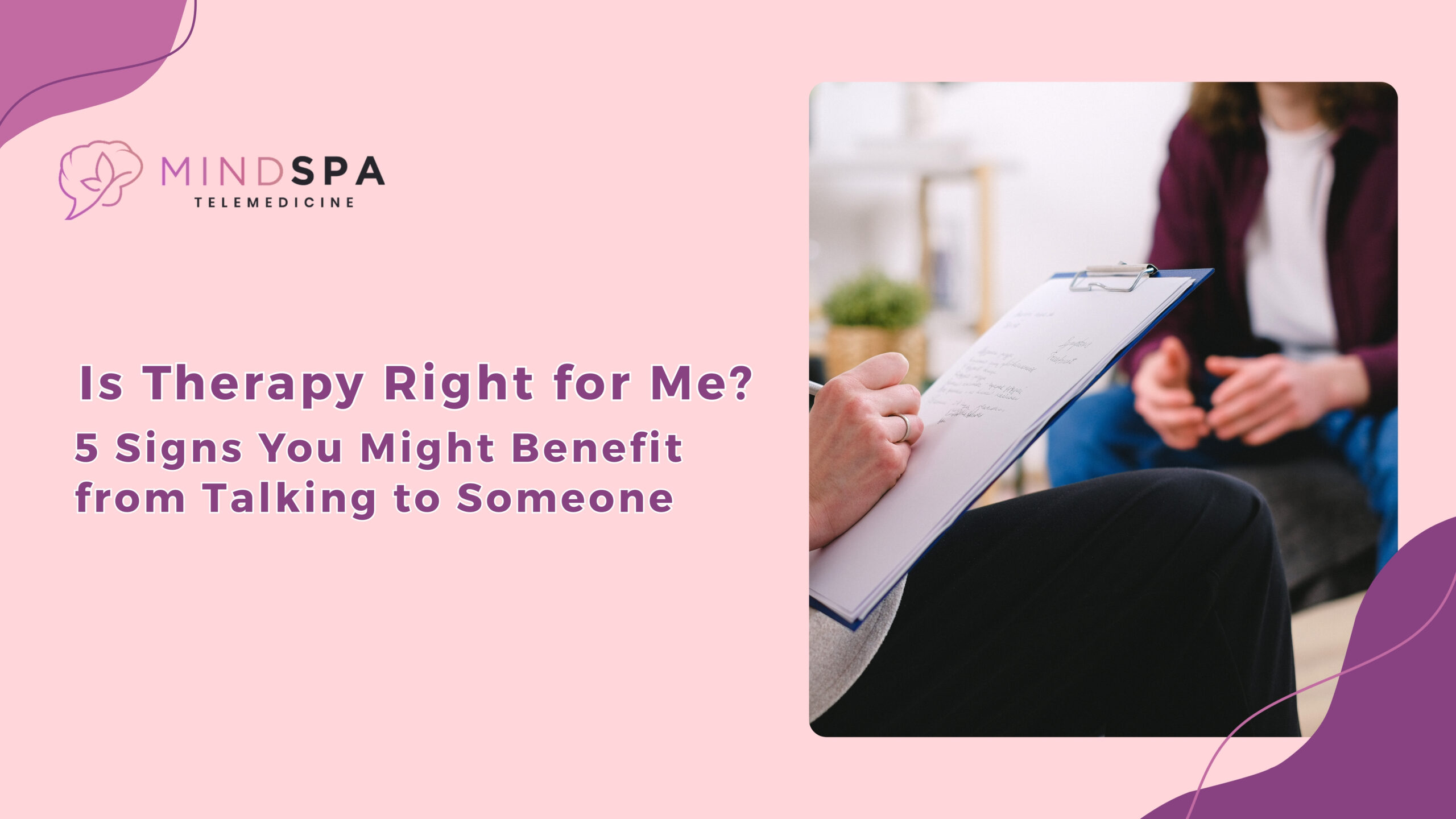Every human being goes through an emotional problem at one time or the other, be it stress, life changes, or personal conflicts. Although friends and family may help, professional advice can usually be more helpful and have lasting benefits. 21.8% of U.S. adults received mental health treatment in 2024, an increase from previous years. But it is still only a few of the millions who need it and never seek it, because of stigma, cost, or inaccessibility.
Crisis is not the only reason to use therapy; it helps in personal development, building of emotional strength, and building better relationships. Here are ways you can determine whether it could help you.
Top 5 Reasons You May Want to Seek Therapy
Therapy is an essential requirement in enhancing life in general as it promotes self-awareness, emotional strength, and adaptive coping. It assists you in dealing with stress and related issues like stress overeating, worries, and negative thinking patterns to find it easier to tackle troubles every day.
With the help of guided discussions, therapists can help to recognize unhealthy habits, enhance communication skills, and develop self-confidence. Therapy is also beneficial in order to make better decisions, as it gives clarity and perspective. It is a safe place to think and discuss matters that relate to work pressures, relationship problems, and personal growth aspirations.
Continuous practice of the acquired insights can lead one to experience better mental health, better relationships, and a healthier, satisfying day-to-day life.
1. You Feel Overwhelmed Most of the Time
All people face problems in life, but when something is consistently holding you down, be it in your mind, your heart, or literally on your back, then you should consider getting help.
Anxiety, depression, or burnout may grow out of being overwhelmed. In therapy, you will be able to safely and compassionately offload your feelings and learn strategies to cope more effectively.
2. Your Usual Coping Strategies Aren’t Working
It is possible that you have tried keeping a journal, confiding in friends, or engaging in hobbies, but you still feel the stress or sadness. It is an indication that you might require more formal support.
The therapist could educate evidence-based coping skills that suit your requirements and enable you to move beyond your unhealthy cycles and instead learn healthier responses to your emotions.
3. Your Relationships Are Strained
Your relationships, whether romantic, familial, or social, may be affected by bad mental health. You may end up pulling away, getting easily annoyed, or not communicating properly.
Therapy provides a platform through which you can analyze these habits, learn what triggers your actions, and how to communicate effectively, thus being able to improve your relationship with others.
4. You’re Experiencing Major Life Changes
Life changes such as moving location, changing occupation, divorce, or the death of a loved one can be emotionally draining. A positive change might be as a marriage or becoming a parent, can also cause unanticipated stress.
Therapy can be used to lead you through such transitions, to deal with emotions, come to a decision, and stay afloat in new circumstances without feeling lost.
5. You’re Not Feeling Like Yourself
It could be the most apparent sometimes; you just are not you. You may feel empty, have no interest in things that you used to like, or experience fatigue with no explanation. Such changes can be a symptom of depression, worry, or some other issues with mental health. A therapist will be able to explain what goes on and come up with a strategy to make you feel better.
Benefits of Talking to a Therapist
The benefits of conversing with a therapist are emotionally rewarding, informative, and time-saving. Therapy helps build coping strategies, effective in relation to managing personal, social relationships, and increase overall cognitive well-being.
- Emotional Support: A therapist will provide a sympathetic ear, and you will feel heard and understood.
- Coping Strategies: Discover new evidence-based skills on how to manage stress, anxiety, or depression.
- Clarity and Insight: Better understand your thoughts, feelings, and behaviors.
- Better Relationships: Become a better communicator and find solutions to interpersonal problems.
- Personal Growth: Develop self-awareness, resiliency, and confidence to deal with challenges.
- Better Decision-Making: Develop clearer thinking and problem-solving abilities.
- Long-Term Well-being: Correct root causes of distress to experience improved mental health.
Take the First Step Towards Mental Peace and Wellbeing
Therapy does not need to be in times of crisis, but is a great method to support and enhance your mental well-being. In case these signs resonate with you and are present in your life, taking that step towards meeting a professional can help you feel balanced and more empowered.
You are not alone in the journey of life; there is always help nearer than you can imagine.
MindSpa Psychiatry and Therapy provides safe and supportive online psychiatric sessions specially arranged according to your needs. If you would like to change your mental state and enjoy improved well-being, reach out to us and make your appointment to start your journey.
Frequently Asked Questions
What signs will tell you that you need therapy?
Therapy can help in case you feel consistently stressed, unhappy, or anxious. You do not need a diagnosis; you just need to want to be in a better mental state and want to acquire new coping techniques.
What are the 5 questions in therapy?
Many therapists ask: What brings you here? How have you been coping? What are your goals for therapy? What challenges do you face? How will we measure progress?
What are the benefits of talking to a therapist?
The treatment provides emotional sustenance, concrete coping strategies, and a secure field to explore oneself. It helps you lead a more balanced, more fulfilling life; it can reduce stress and improve relationships while improving confidence.
How do I know if therapy is helping?
You may find that you feel more stable in your mood, are coping healthily, have better relationships, or make decisions more clearly. The changes may be slow, but there must be positive changes to show that therapy is effective.
Do I need counseling or therapy?
Counselling tends to be issue or problem-focused, in contrast to therapy, which is mostly more emotionally pervasive and concerned about mental health issues. You can use a professional to take you through the process of understanding which approach works.

